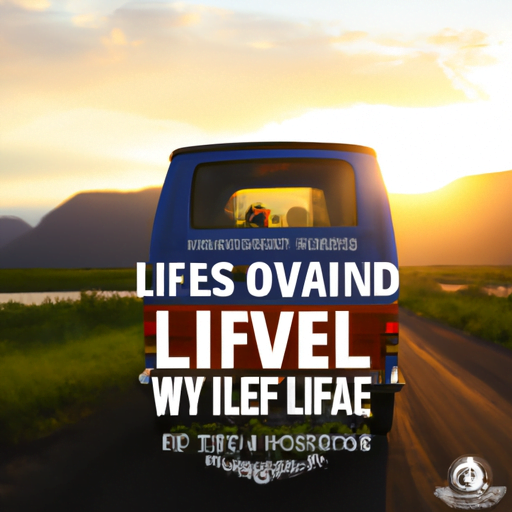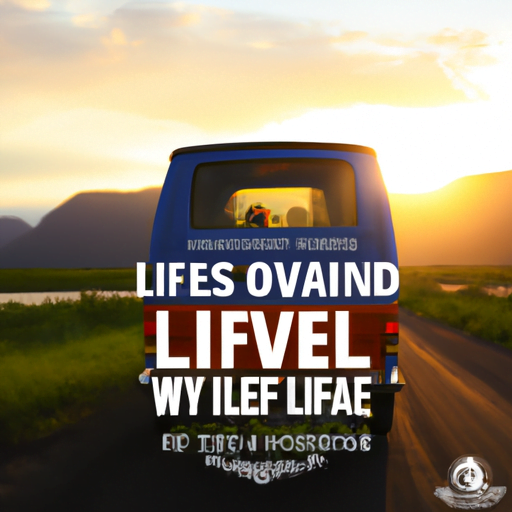Have you ever dreamed of living off the grid, traveling wherever the wind takes you? The idea of waking up to the sound of nature, with no fixed address and the freedom to explore new destinations every day is undeniably alluring. But before you embark on your van life adventure in Australia, it’s important to understand the legalities surrounding this alternative way of living. In this article, we will explore the legality of van life in Australia, providing you with all the information you need to ensure a smooth journey.
One of the first questions that may come to mind is whether van life is even legal in Australia. The short answer is yes, it is legal to live in a van in Australia. However, there are certain regulations and restrictions that you must be aware of. The main concern for authorities is ensuring public safety and preventing any negative impact on the environment. As a result, there are laws in place that govern where you can park and camp overnight, as well as regulations around waste disposal and the use of public facilities.
To fully understand the legal implications of van life in Australia, it is important to familiarize yourself with the specific laws and regulations of each state and territory. While there are common guidelines that apply nationwide, there are also local variations that you must adhere to. For example, some areas may have designated camping zones or require permits for overnight parking, while others may prohibit camping altogether. Understanding and respecting these rules will not only keep you in compliance with the law, but also help preserve the natural beauty of Australia for future generations.
In the following paragraphs, we will delve deeper into the laws and regulations surrounding van life in Australia, exploring topics such as parking and camping restrictions, waste management, and the potential consequences of non-compliance. We will also provide practical tips and resources to help you navigate the legal landscape and ensure a hassle-free van life experience. So, if you’re ready to hit the road and embark on your van life adventure, keep reading to learn more about the legality of van life in Australia.

Exploring the Legality of Van Life in Australia
Understanding the Concept of Van Life
Van life refers to a lifestyle where individuals choose to live and travel in a van instead of a traditional home. It has gained popularity in recent years, primarily due to the freedom and flexibility it offers. Van life enthusiasts embrace minimalism and prioritize experiences over material possessions. The concept revolves around the idea of living a more simplistic and adventurous life, often exploring new places and immersing oneself in nature.
Importance of Knowing the Legalities
Before embarking on the van life journey, it is crucial to have a good understanding of the legalities surrounding this lifestyle. Ignorance of the law is not an excuse, and getting caught in legal troubles can significantly impact your experience. Familiarizing yourself with the laws and regulations governing van life will not only help you avoid potential penalties but also ensure a secure living situation and protect your rights and interests.
Laws and Regulations Governing Van Life
In Australia, the laws and regulations relating to van life vary across different states and territories. The legality of van life largely depends on where you choose to park, camp, or reside. It is essential to research and understand the specific laws and regulations of the areas you plan to visit or stay in.
Residency Requirements for Van Life
Determining your primary place of residence is integral to the legality of van life in Australia. Each state and territory has its own residency laws, which dictate the minimum amount of time you must spend in a particular area to be considered a resident. Understanding these laws will help ensure that you are compliant and avoid any legal issues.
Documentation and proof of residence may also be required in certain situations. It is advisable to keep necessary identification documents, such as driver’s license and vehicle registration, up to date and easily accessible.
Permits and Licenses for Living in a Van
While living in a van provides a sense of freedom, it is important to have the necessary permits and licenses to ensure compliance with the law. Vehicle registration and insurance are mandatory for all vehicles, including those used for van life. It is crucial to keep your vehicle registration and insurance up to date to avoid penalties and legal implications.
Your driver’s license must also be valid and appropriate for the type of vehicle you are driving. If you plan to drive a larger van or a vehicle that exceeds certain weight limits, you may need to obtain a different license class or endorsement.
In some situations, special permits may be required for extended stays in certain areas. For example, if you plan to camp or park in a national park or designated camping area for an extended period of time, you may need to obtain a specific permit.
Choosing the Right Vehicle for Van Life
Selecting the right vehicle for van life is crucial both for your comfort and to comply with legal requirements. Various types of vehicles are suitable for van life, including campervans, caravans, and converted vans. It is important to consider factors such as size, amenities, and overall condition when choosing a van.
Ensure that your chosen vehicle meets safety standards and is roadworthy. Regular maintenance and inspections are essential to ensure your vehicle is in compliance with safety regulations.
Safety Standards for Van Life
Maintaining safety standards is of utmost importance in van life. As you will be living in a confined space, it is crucial to prioritize fire safety and emergency preparedness. Installing smoke detectors, fire extinguishers, and carbon monoxide detectors can provide added security and peace of mind.
Gas appliances and heating systems should be regularly inspected to ensure safety. Proper ventilation is necessary to prevent the buildup of potentially harmful gases. Adequate secure storage solutions should also be implemented to prevent injuries from loose items during travel.
Managing Waste and Environmental Impact
Living in a van requires conscious efforts to minimize waste and reduce environmental impact. Proper disposal of garbage and wastewater is essential to maintain cleanliness and preserve the environment. Researching waste disposal options and adhering to local guidelines and regulations will help ensure you are acting responsibly.
To minimize your environmental footprint, consider adopting sustainable practices such as using solar panels for energy consumption, reducing water usage, and utilizing eco-friendly products. Being mindful of your energy consumption and employing energy-efficient solutions can significantly reduce your impact on the environment.
Navigating Local Council Bylaws
Local councils may have specific bylaws that regulate camping, parking, and overnight stays in their respective areas. These bylaws are designed to maintain order, safety, and the well-being of both residents and visitors. It is essential to familiarize yourself with local council regulations and adhere to them to avoid legal issues and conflicts.
Some areas may have designated camping zones or free camping areas where van life is allowed. Researching these locations and obtaining any necessary permits or permissions will help ensure a smooth and legal van life experience.
Conclusion
Exploring the legality of van life in Australia is essential for anyone considering this alternative lifestyle. Understanding the laws and regulations governing van life, residency requirements, permits and licenses, and safety standards will help ensure a secure and enjoyable experience.
By familiarizing yourself with the rules and regulations, you can confidently embrace the van life philosophy while avoiding potential legal issues and penalties. Respect for the environment, local communities, and adhering to the guidelines set by local councils will contribute to a positive and sustainable van life journey in Australia.




